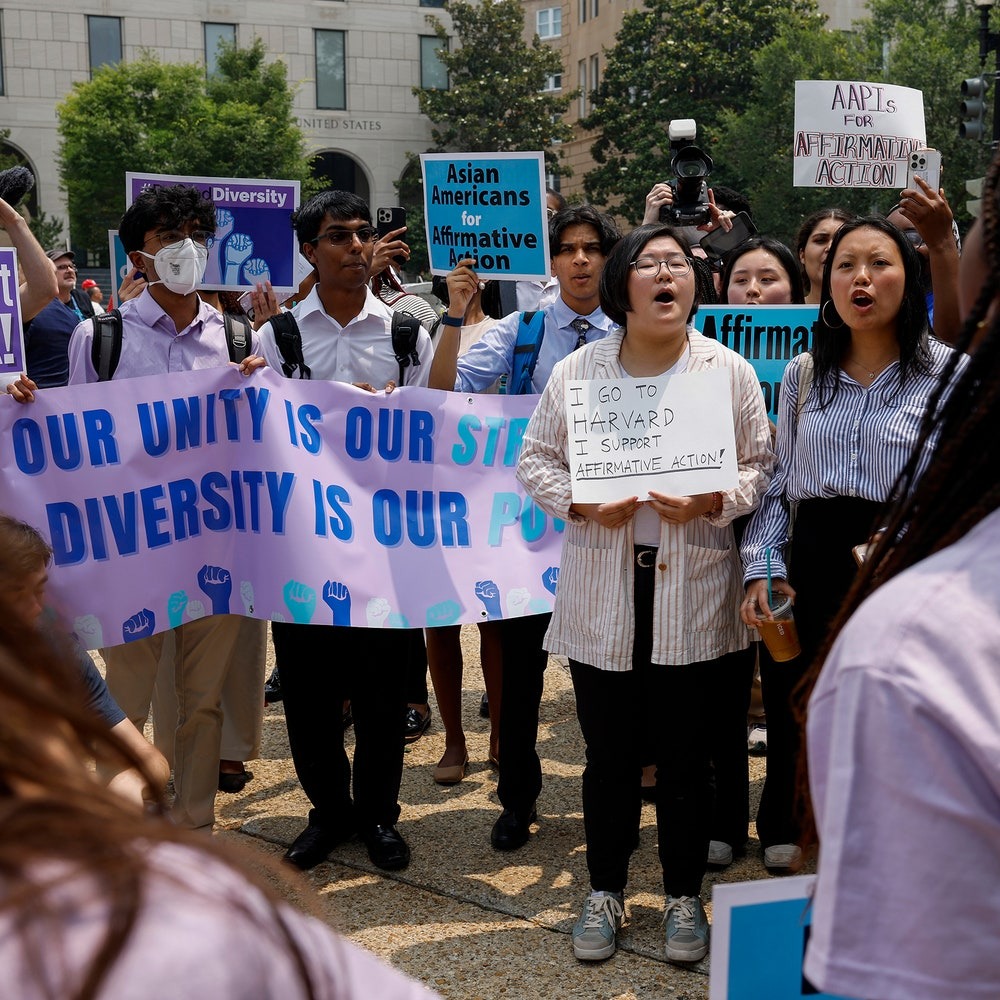
Nearly a decade has passed since Students for Fair Admissions, or S.F.F.A., first filed a lawsuit against Harvard University over its race-based admissions policies. During that time, not much has changed about the particulars of the case, nor how they have been processed by both the courts and the public. The announcement of the Supreme Court’s ultimate ruling in the case—a 6–3 decision that effectively ends affirmative action in college admissions and most likely beyond—did not contain any surprises. Chief Justice John Roberts, writing for the majority, argued that “many universities have for too long wrongly concluded that the touchstone of an individual’s identity is not challenges bested, skills built, or lessons learned, but the color of their skin.” Justice Ketanji Brown Jackson, in dissent, wrote about “gulf-sized race-based gaps” and argued that racial preferences in admissions were necessary to address “the well-documented ‘intergenerational transmission of inequality’ that still plagues our citizenry.”
Asian Americans, the group whom the suit was supposedly about, have been oddly absent from the conversations that have followed the ruling. The repetitiveness of the affirmative-action debate has come about, in large part, because both the courts and the media have mostly ignored the Asian American plaintiffs and chosen, instead, to relitigate the same arguments about merit, white supremacy, and privilege. During the five years I spent covering this case, the commentators defending affirmative action almost never disproved the central claim that discrimination was taking place against Asian Americans, even as they dismissed the plaintiffs as pawns who had been duped by a conservative legal activist. They almost always redirected the conversation to something else—often legacy admissions.











